On-Page SEO vs Off-Page SEO
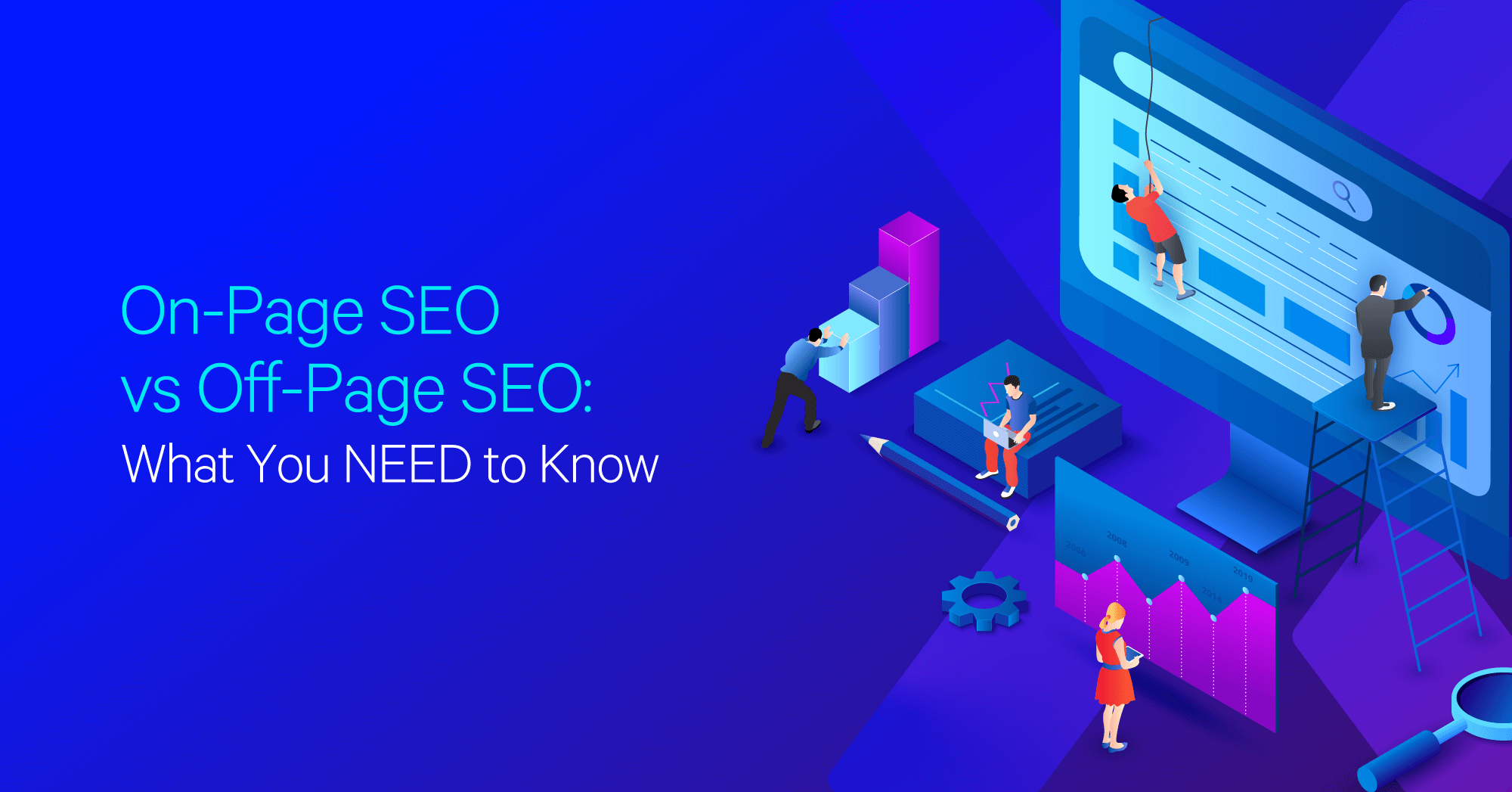
Hand off the toughest tasks in SEO, PPC, and content without compromising quality
Explore ServicesWant to grab more organic traffic from the SERPs?
Of course you do.
When it comes to SEO, there are two distinct branches to be addressed: on-page and off-page SEO. Both are important for success in search engines.
However, they both help your site in different ways.
To help you learn more about each and update your current strategy, we’ll go over and explain the difference between on/off page SEO factors.
On-page vs. Off-page SEO (+ Why is it important?)
The important of these factors for search engine optimization is pretty simple:
A (good) SEO strategy considers both on and off-page factors.
Duh. An obvious answer, I know. Let me explain:
- It’s not enough to have quality content. You won’t rank just by finding the right keywords and jamming them into an article.
- You need to create great content people can find and will share. Get people to find and share your content, and follow up with people who want the change you offer.
- It’s time to think about how to acquire high-quality backlinks and get your readers to share your content with their networks (for both backlinks and social shares).
Understanding what goes into nailing both on-page and off-page SEO will grow your ranking potential.
Let’s take a look at each search engine ranking tactics in more detail:
What is on-page SEO?
On-page SEO is the range of possible actions you can take on individual pages to optimize their reach.
Some basic on-page factors to optimise as part of your marketing strategy include:
- Meta tags (title tags and meta descriptions)
- Internal linking (+ anchor texts)
- Image SEO ( ALT texts)
On-page optimization can go further than that though:
Things like matching keywords to search queries, finding missed opportunities and new keywords to target through a competitor keyword analysis, all the way to technical things like page load optimizations and fixing broken links.
The technical side of on-page SEO primarily focuses on making sure your content is as accessible as possible for both people and crawlers.
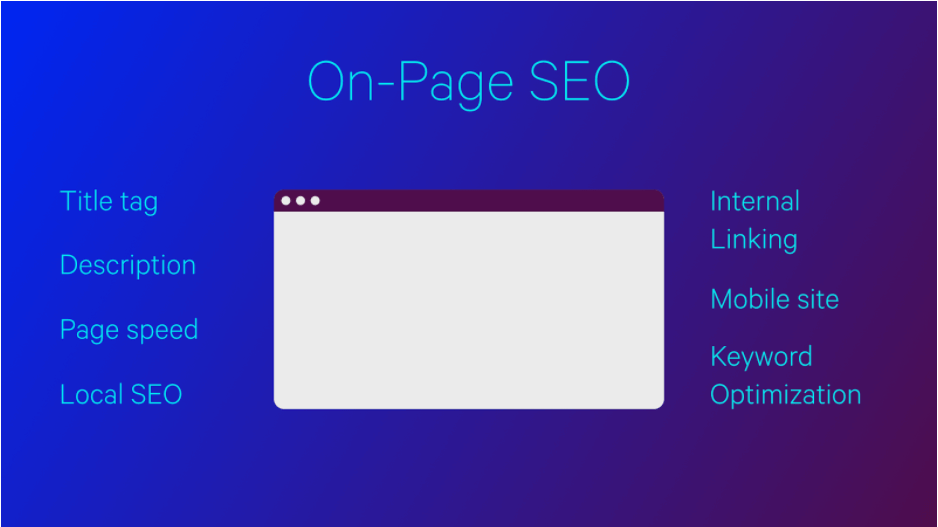
Advantages of on-page SEO:
- Higher rankings
- Increased traffic
- Having content people want to read
- Refined User Experience (UX)
- Increase Click-Through Rate (CTR)
- Better information architecture (IA)
- Complete control over these optimization tactics
Disadvantages of on-page SEO:
- It requires a lot of time and investment
- It can take time to show results
- It’s up to the algorithm to rank you
What is off-page SEO?
Off-page SEO is all the actions you can take outside your website to optimize its reach.
You might be thinking, “that’s a lot!” And you’d be right. Off-page SEO is the umbrella term for everything done outside of your website. This ranges from backlinks to Social Media Marketing.
Google takes a massive—and unknown—number of off-page factors into account when ranking web pages.
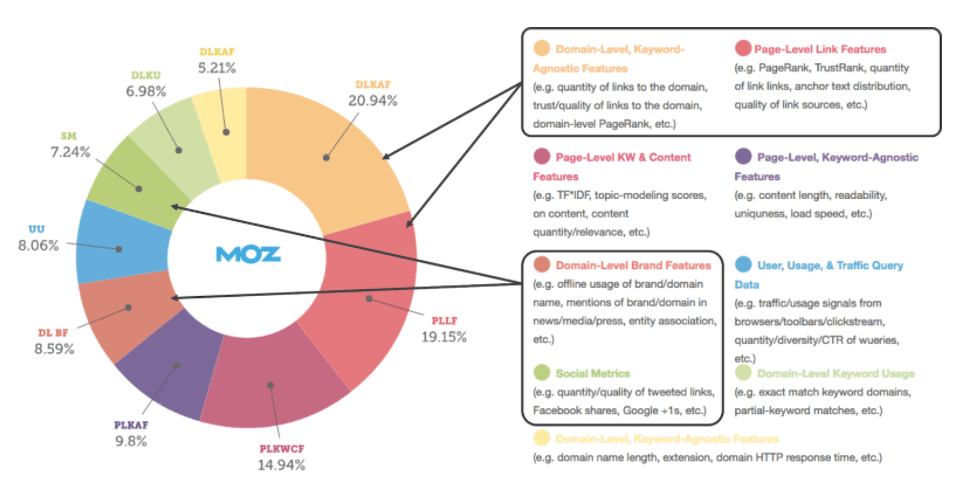
Source: Moz Off-Page SEO
While not every ranking factor is known, it’s well agreed that relevant, trustworthy, and authoritative off-page SEO enables a site to rank well.
Backlinks are so critical to off-page SEO that it’s often split into “link-related” and “non-link-related” factors. Link-related factors involve determining backlink quality, and as a premium link building service, we know a thing or two about how to assess backlink quality.
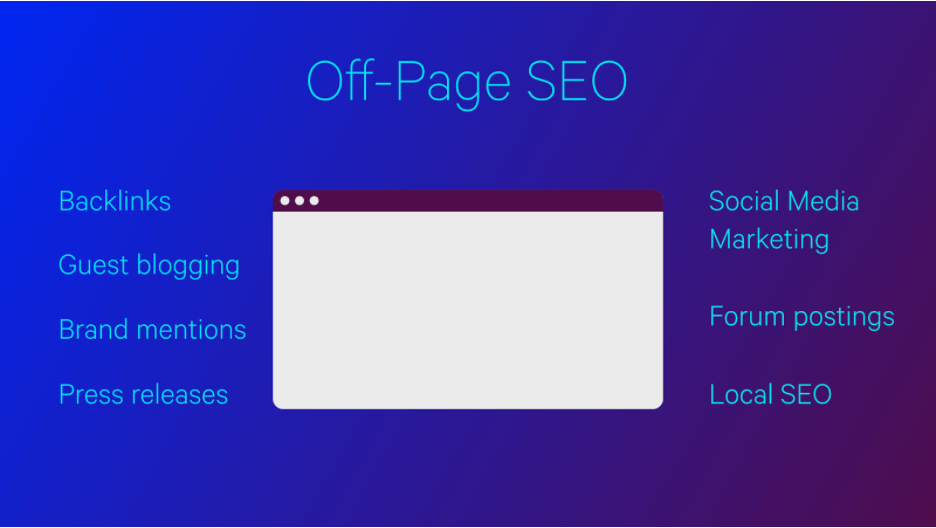
Advantages:
- Higher search rankings
- Increased webpage traffic
- More brand exposure
Disadvantages:
- Takes time to build proper relationships
- Less control over these optimization tactics
What’s the difference between on-page SEO and off-page SEO?
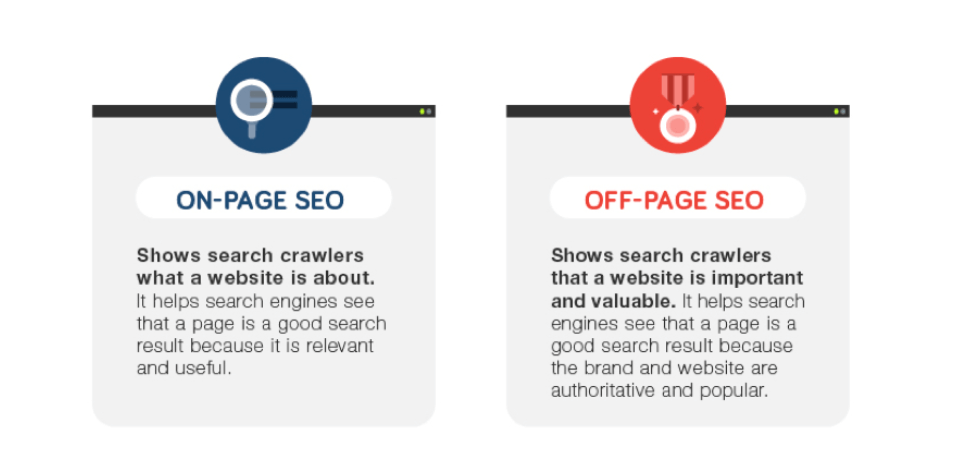
Source: Alexa Off-Page SEO Techniques
- On-page SEO is all the actions you can take on your own website, while off-page SEO is all the actions you can take elsewhere.
- You control your on-page SEO while you can’t completely control your off-page SEO.
- On-page SEO primarily helps determine what you rank for, while off-page SEO helps mostly determine how high you rank.
Actions you can take on your own website vs. actions elsewhere
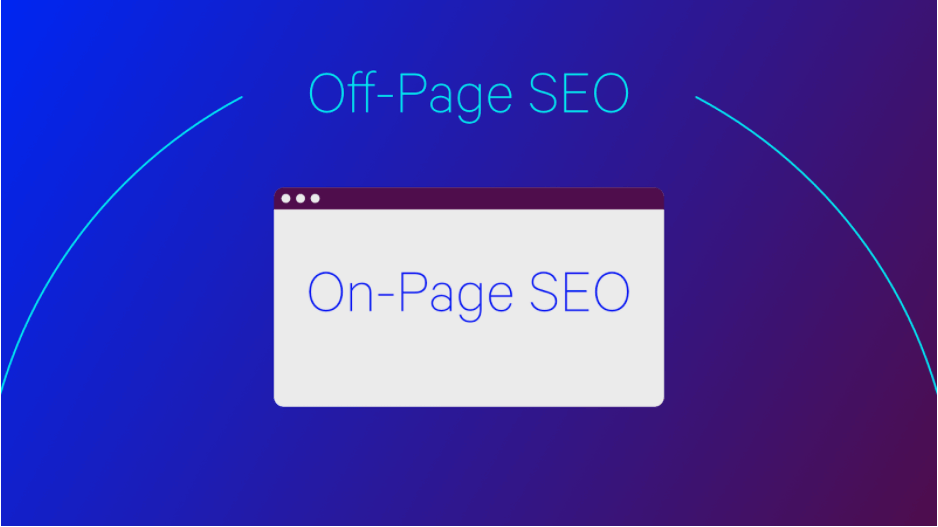
Examples of on-page SEO:
- Title tag optimization
- Meta description optimization
- Heading and keyword optimization
- Internal linking
- Having content people actually want to read
- Mobile-friendly site
- Site navigation and URL optimization
- Page speed optimization
- Local SEO (Business name, Address, Phone Number, Location)
Examples of off-page SEO:
- Backlinks
- Guest blogging
- Social Media Marketing
- Brand mentions
- Press releases
- Forum postings
- Local SEO (GMB, Citations, Reviews)
On-page SEO control vs. off-page SEO control
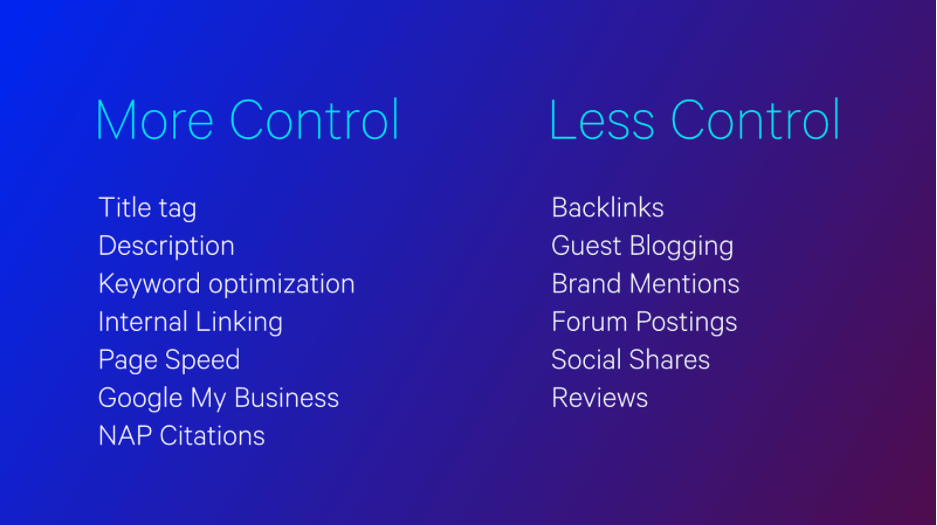
Everyone can control on-page SEO like page titles, descriptions, keywords, and page speed. But what happens off-page is often more critical and valuable than what’s happening on-page.
Even with the best content and user-friendly site available, if you don’t have a following that shares and links across the web, you won’t see growth. And for the most part, you can’t control your shares and links.
What you rank for vs. how high you rank
Keyword targeting and other on-page SEO tactics will primarily determine what you rank for, while backlinks and other off-page SEO tactics will mainly determine how high you rank.
For local businesses, local SEO involves all the on-page and off-page optimizations you need for a local business to rank. Although local SEO primarily happens off-page through local SEO ranking factors. Local SEO utilizes organic SEO with a location-based focus.
Actionable SEO insights 🔍
Give us your site (or clients) and we’ll analyze the site’s SEO elements (on-page, URL equity, competitors etc), then organise this data into an actionable SEO audit.
Summary
All SEO work can be divided between these two disciplines:
- On-page SEO is any optimization done to a specific page, while off-page SEO is any optimization done outside of your website.
- Off-page SEO comes after you’ve worked on your on-page SEO to deliver content people actually want to read and primarily involves backlinks.
It’s important to know what’s working in Google search and refine your page SEO strategy by fixing what’s not working.
To report on your campaign’s success, you need to track your SEO performance. You can also utilize white label SEO tools for reporting alongside, auditing, analytics, and more.
Hand off the toughest tasks in SEO, PPC, and content without compromising quality
Explore ServicesWritten by Adam Steele on October 15, 2020
COO and Product Director at Loganix. Recovering SEO, now focused on the understanding how Loganix can make the work-lives of SEO and agency folks more enjoyable, and profitable. Writing from beautiful Vancouver, British Columbia.





